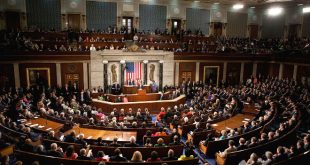 Over 100 predominantly black pastors recently met with one of the Republican candidates for president, Donald Trump. News traveled quickly that Donald Trump was reaching out not only to pastors but also to the black community. This was seen as a smart move for Mr. Trump. He understands that he must continue to reach out to all groups if he is to maintain his lead in the current political race for president. Kudos to Mr. Trump for recognizing the need to expand his base and court the black and religious vote, which many see as pointless since a large majority of the African American community has historically voted Democrat. However, I contend that the black vote is in play and can have major implications on the upcoming 2016 national election for President of the United States of America.
Over 100 predominantly black pastors recently met with one of the Republican candidates for president, Donald Trump. News traveled quickly that Donald Trump was reaching out not only to pastors but also to the black community. This was seen as a smart move for Mr. Trump. He understands that he must continue to reach out to all groups if he is to maintain his lead in the current political race for president. Kudos to Mr. Trump for recognizing the need to expand his base and court the black and religious vote, which many see as pointless since a large majority of the African American community has historically voted Democrat. However, I contend that the black vote is in play and can have major implications on the upcoming 2016 national election for President of the United States of America.
The concept of bringing together pastors and vying for their vote was a correct endeavor on behalf of the Trump team; however, some pastors have already come out against the meeting.
Regardless of where you stand on whether the meeting should have taken place, there are some critical lessons that pastors can learn as takeaways from the meeting.
I believe that way too often on the political front, some clergy get caught in a quandary. The position is that some political leaders come calling on them to meet, get counsel, or perhaps attend their church. These are noble reasons for the politician, but perhaps place the pastor in between two worlds. The hard reality is it’s very rare that politicians are calling on pastors for their economic advice/expertise or for their deep knowledge of foreign affairs. I do understand that clergy have a unique insight to some aspects of the community members they serve and their respective economic condition, and I do understand that many have traveled on mission trips. But neither of those experiences is the main reason why a politician comes to you. Most often, you’re being courted for your potential to deliver votes, influence communities, and open doors through your credibility to a unique constituency. You see, those are the reasons why the Grace of God has placed many of us in the places of service — to win souls, influence people’s decision’s for Christ, and be in place to provide wise counsel. Do you see the similarities?
I believe we can derive at least three lessons from the Trump meeting:
1.) Know your stance and provide clarity
In today’s world, it is important that you know where you stand on issues, because if you don’t, well-meaning people with no sense of conviction to their beliefs will fill in the blanks. Prior to a meeting with a politician or candidate, do your homework, know the key issues in your community, or least seek the counsel of someone who will assist in prepping you for the meeting. When you listen to the various candidates, you should understand what are the absolutes and flexible points for you. If you are a black pastor, you need to have a level of urban literacy. While you don’t have to be the expert, you do need to understand something about education, housing, unemployment, mass incarceration rates, or the current race relations and criminal justice system challenges. Knowing some information on these items will assure that you don’t allow a meeting to pass and critical issues not be addressed. Provide clarity on crucial items in context to the candidate /politician. I am sure that if some of the pastors shifted the invite from Trump’s folks through a filter of moral conviction on perhaps gambling, it would have eliminated the decision of whether or not they will attend.
2.) Don’t be swayed — Ask for the order
One of the ways good candidates/politicians have gotten into good positions is they’re gifted with a silver tongue and strong persuasive abilities. If you’re not careful, you’ll also be a victim of those great talents. Write a clear agenda for yourself prior to the meeting. Don’t be taken by the glitz or glimmer, but understand your objectives prior to hitting the room. In my former capacity as a sales person, it was my responsibility before I went to any networking function to do my homework. Find out who the other attendees are going to be, what their roles were in their respective companies, and who are the sponsors. Applying some of those same techniques would be great. Understand what will be happening in the meeting and request a pre-agenda. Stay firm on your points when asked questions or given an opportunity to speak. Finally, please ask for the order! Ask for a deliverable with a coordinated timeline and next action step. If you don’t get some of these items, then you have just attended a nice meeting. Don’t leave the meeting without working to coordinate a real result.
3.) Be wise but take your best shot
Be prepared and please listen. Make sure you are not setting yourself up prematurely for an endorsement — like one of the coordinating pastors for the Trump meeting. He endorsed Trump back in September 2015. Why? Trump has no track record of standing up on any of the current social ills facing our country, and the landscape of candidates was still pretty full. There was no relevant need to endorse so early. It also showed that he really had not listened to the other candidates and their ideas.
I do believe in engaging, but only after thoughtful and well counseled consideration is given. You need to be prepared to seize your moment. While the candidate /politician comes with an agenda, you need to have your items to discuss ready and waiting. If your issue is on marriage and the breakdown of the family, ask a question that they can actually do something about. Don’t ask if they understand that family breakdown is hurting the lives of many Americans; ask what would be their plan to ensure that marriage is stabilized in our country and what specific policy ideas would they introduce or support. You will get a good gauge of what they believe and how hard they will potentially work for you if elected. Remember, when you get the opportunity, take it!
You can learn lessons at any age, and it’s truly important that we have engaged clergy around this great country who not only attend a meeting, but work to deliver real, tangible result for the communities they serve. Remember, as a clergy member, typically your invite to the table is because God has set you before Kings. Don’t abdicate your voice of moral clarity!
Photo credit: Gage Skidmore (Creative Commons) – Some Rights Reserved
 Rev. Derek McCoy is the National Clergy Relations Director for CURE.
Rev. Derek McCoy is the National Clergy Relations Director for CURE.
 CURE News and Clergy Blog News and Commentary for Christians
CURE News and Clergy Blog News and Commentary for Christians



